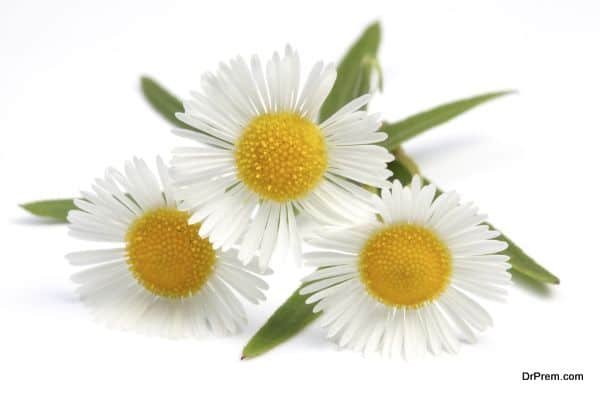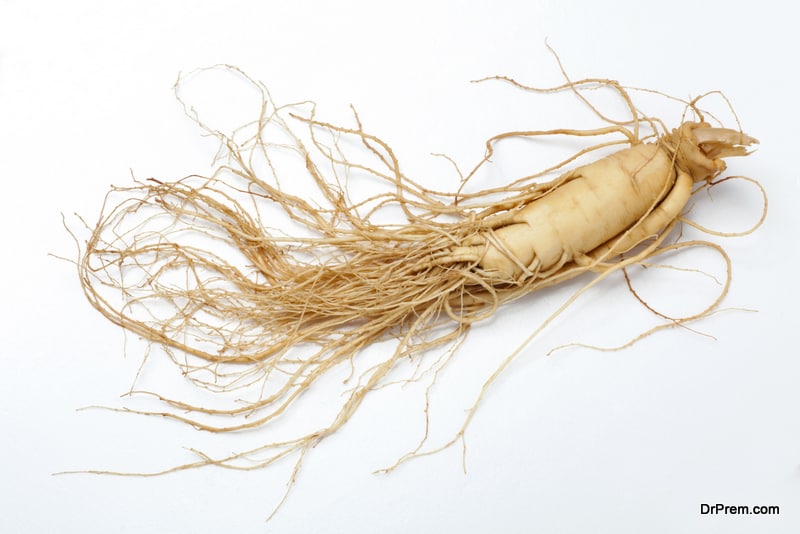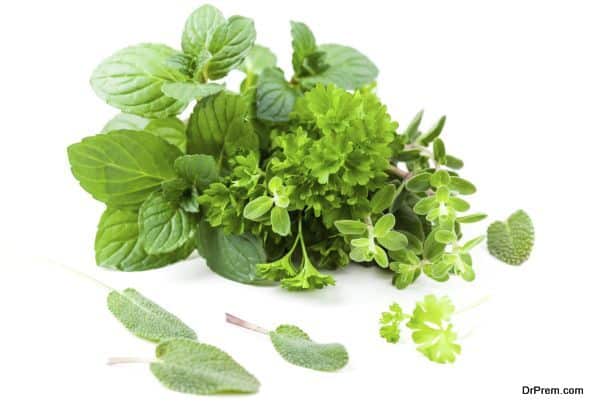The word “STRESS” is commonly used for worries and anxiety a person is facing in day to day life. The constant stress and pressure of fulfilling the day to day task can cause physical or mental side- effects. On the other side a little worry or anxiety is needed to keep a person motivated and makes person to work harder thus maintaining a balance is must to stay fit.
Let’s know the common signs and symptoms of stress
- Being more irritable on small matters
- Over reacting to criticism
- Confused feeling, don’t know where to start from, inability to take decisions
- Feeling of guilty when relaxing
- Sleep problems or early waking up
- Increased alcohol consumption or smoking
- Difficult to concentrate
- Physical health problems like headache, indigestion, loss or increased appetite
- Nail biting or increased compulsive activities
- Feeling tense all the time
Unraveling the link of anxiety and stress to depression
A moderate level of stress and anxiety are a part of modern lifestyle. Stress can stem from hectic work schedule and family responsibilities or abnormal circumstances like a severely ill near relative or a health disorder. Stress can sometimes translate into anxiety.
Being or feeling anxious can turn into a chronic disorder. If not checked on time this can lead to deterioration of health. Many believe that stress and anxiety can also be the reason of depression. The relationship between anxiety and depression is a matter of speculation.
How to distinguish between anxiety and depression?
The layman cannot always decipher the differences between complex disorders like depression and anxiety. Anxiety disorder is characterized by a feeling of insecurity, fear and uncertainty about future events. It can make the sufferer feel vulnerable and helpless. They are tortured by anxious thoughts and worry unnecessarily.
They may also feel unpleasant physical sensations due to anxiety. Depression is different than anxiety. Anxiety makes people feel worried about future incidents. People suffering from depression feel negative about life and feel hopeless. They think they know that the future is dark.
They tend to feel sad and morose. Most sufferers also do not feel like working or maintaining a normal routine. If you are suffering from depression then your appetite may decline and you may find it difficult to concentrate on work.
What is the relationship between stress and depression?
Chronic and temporary stress leads to over activity of the body’s mechanism for tackling such situations. If an individual has to tackle chronic or sustained stress over a long time then the stress hormone level increases in their system. Stress also reduces the levels of dopamine and serotonin, which have been linked to depression.
The chemical system helps in keeping our appetite, sexual desire, daily routines normal. But if there is a problem in the chemical levels then one may start experiencing lack of appetite, mood swings and sadness. This way stress can be blamed for causing depression.
Losing someone who has always been close to you like your parents, brother, sister or spouse can be a huge stress to cope with. This can lead to depression. Remorse and grief subsides, but those prone to depression will need medical help to get over it.
Remedies that can help you in getting a grip on depression
It may seem to be extremely difficult for a person suffering from depression to maintain and follow a routine. So, if you are suffering from depression the first thing that you try to do as remedy will be implementing a easy to follow routine. Keep aside time for tasks like taking out your dog for a walk or coaching kids how to swim or play basketball. It will also be good if you enroll yourself for a new class and learn a new skill. Don’t be too hard on yourself. Depression can rob your desire to do the most basic tasks.
Take care of your personal appearance and groom yourself. Setting small goals and achieving them everyday will also prove to be beneficial. This will enhance your self-confidence. Do not be afraid to ask your family and friends for support. The counseling and support of loving friends and family members can be of great help in getting you out of the depressed feeling. Eat small nutritious meals and sleep for at least 7 hours a day.
Depression can be caused by chronic stress but it is not same as anxiety disorder. For controlling depression an individual should try to follow a routine, occupy themselves with their hobbies and seek support from family and friends.
Coping With Stress on a Natural Level
Cope with stress by using these simple stress relieving tips:
Try small meals throughout the day
When you’re stressed out, eating healthy meals tends to forgotten. You want comfort foods when you’re feeling frustrated. To avoid stress in the first place, try eating healthy snacks throughout the day. Small meals keep your blood sugar steady, which eases your stress at the physiological level. Don’t forgo eating because you’re very busy. Low, blood sugar will only create more stress as your body fights to stay alert during your stressed period. After the stress subsides, treat yourself to a minor comfort food as a reward.
Turn on the Music
Everyone responds to stress in different ways. Add some music into your day so that relief is almost instantaneous. You might turn on relaxing jazz, or rock out the stress through heavy metal. In some cases, you might work or study better with music on in the background. Use the rhythm to help you through the stressful situation. If you’re on a deadline, a steady beat might give you energy to file or input customer information in an office setting. Don’t disturb others while you enjoy the beat. Headphones might be a good investment in this case.
Stretch and Exercise the Stress Away
Take advantage of the energy trapped in your body as the anxiety and stress set in. That energy can be focused into exercise that will only help you relax. Stretch your body, and pick an exercise that you enjoy. Perform the exercise in moderation so that you don’t injure yourself. By exercising, you’re releasing good hormones that make you feel good and relaxed. After the workout, you may have more energy to deal with the stressful situation again. You could possibly solve the problem with ease at this point.
Seek Out Natural Supplements
Another clever way to fight stress is by using supplements. If you walk into a local vitamin store, you’ll be greeted by several aisles of synthetic and natural products. Use products that are advertised as natural instead of the manufactured types. Valerian root and RediCalm are examples of natural supplements that really fight anxiety and stress. Read the labels associated with the supplements so that you know what’s inside each bottle. Natural supplements have simple labels with short, ingredient lists.
Catch the Giggles
Laughter is the best medicine, and that adage fits almost any situation. Take a moment to listen to a funny comedian on the radio. Pull out a funny book and read a few jokes. By turning to laughter, you’re naturally releasing stress. Call a friend so that you can giggle over the phone as well. Laughter releases good hormones too. Talking about your stress between the laughs is also a smart way to cope.
From a RediCalm supplement to taking a brisk walk, coping mechanisms for stress are always available to you. Pick a relief solution that speaks to your interests so that you gain the most benefits from it. Your day can be much calmer as a result.
Other useful tips to cope with Stress:
Stress is part and parcel of everyone’s life. It is important for us to cope with it and not allowing it to empower our mental or physical health. Here are some tips to cope with stress. By adopting simple lifestyle changes we can easily reduce the worries and anxieties.
- Learn to say “NO”- whenever you are unable to fulfill the demand placed on you, and walk away from stressful situation. Do one thing at a time.
- Friends- spend time with friends having positive attitude. Discussing problem with them will help to find the solution of the problem or at least it will ease your stress.
- Accept help- don’t hesitate on taking help from friends and relatives. You must be aware or your limitation, try not to be more competitive beyond limits
- Shout, scream or even hit a pillow to allow the steam to let off. Do it safely in a room.
- Learn relaxation technique like yoga, meditation, exercise and practice it regularly.
- Find time for yourself and do the activities you like most, develop hobbies like reading, gardening, music etc. spend quality time with family and children.
- Prepare yourself for activities that you know will lead to stress.
- Instead of cigarette, munching of healthy snacks would help you to quit smoking.
Dealing with stress at work
You may often feel more stressed especially when at work. You may feel pressurized by the workload; the working hours or at times, the people around may bother you. Here we can see some ways to deal with this stress at workplace.
Feeling the pressure to a certain extent is good for your performance. It can keep you focused on your work and make every effort to succeed in your ventures. However, if this pressure exceeds its limit and begins to affect your mind and body, it is time to think about it.
Identifying the stressors
The most important thing is to identify the stressors or the factors that bother you. It could be a subordinate or a colleague, or the environment or it could be your shift work that is not giving you enough rest. Your stress could also be because of your habits, preferences or attitudes that do not suit the work environment. Once you have identified the cause it is easier to work on them for correction.
Dealing with stress at workplace
Although you cannot completely remove stress from your life, there are certain strategies that you can adopt, which might invite less pressure on you and your activities. Here are some tips that you can use.
- Be more alert during work and plan your work in advance. Delegate work wherever required. Make clear communication to your colleagues. If your feel it is not possible to finish a task in the given timeline communicate the same, to find a timely solution.
- Make sure you know your job well. Whenever possible, take regular training sessions that will help to boost your knowledge, confidence and personality as a whole.
- Take breaks in between your work and you can practice short exercises or relaxation techniques. Take breaks during weekends and go to recreation clubs or enjoy sports, picnics etc. You can plan to go for a vacation with your family or friends.
- It is also important to spend quality time with your family. You can also talk to your friends or people in the family and can discuss about your concerns at your workplace, or any such things that are bothering you. You can consider making slight changes in your beliefs, attitudes and behavior.
- Assess your daily routine and make sure you are getting adequate nutrition and rest. Maintain a healthy lifestyle with a minimum number of sleeping hours, a balanced diet and regular exercise. Hormones relieved during exercise will also help you fight the stress. Avoid indulgence in food habits that are detrimental to your health.
Excessive stress at workplace can affect your performance in the longer run. It can also affect your health, sleep and personal relationships. While stress is not always avoidable, there are ways to cope with it.
11 Magical herbs to help you fight stress
What many of us tend to overlook many a times is that mother nature has blessed mankind with natural solutions of her own which yield the bare minimum if not no side effects if used rightly. There are 3 classes of natural herbs available which help to deal with stress in different aspects:
- Adapatogenic Herbs: These herbs regulate and balance the functions of the immune, hormonal and nervous systems thus helping to combat the various bodily changes that occur as a reaction to stressful situations.
- Nervine Herbs: These herbs deal with the damage caused by stress and prevents further influence.
- Tonic Herbs: As the name suggests, these function like a tonic to various organs and body systems.
Sometimes, naturally derived solutions do not have the instant effect as like their chemical components. But they are infinity better when it comes to harmonizing with your life in the long run. They are also extremely cost effective and can be taken in the way you like : in tea,pizza, stews, salads etc. And, too much of a good thing always gets in the way. so exercise moderation or stick to your physicians prescription.
Tarragon (Artemisia dracunculus)
The Arabic word “tarkhun” is the root of this herb’s name, which means ‘ a little dragon’. It has been in use from ancient times for calming down hyper active children. Tarragon is perhaps best known as ‘mugwort’ and is said to promote calmness, balanced appetite and peacefulness without a feeling of being tranquilized. It also contains minerals which are low in a modern diet.
For stress relief, it is advised to take 5 milliliters of mugwort root tincture orally about 30 minutes before you take a nightcap. That should give you a good night’s rest.
If you take chemical blood thinners like Coumadin, do not use mugwort. Similarly, stay away from this herb if you are pregnant, breastfeeding, have an allergy to hazelnuts or have a bleeding disorder.
It is best to consult with a physician for the use of this herb as it creates many allergic reactions in people who have allergies with any ember of the Asteraceae/Compositae family.
Rosemary (Rosmarini officinalis)
Rosemary is primarily used to promote clarity of the mind and to relieve tension. The usage of this herb dates back to ancient times. Greek scholars used to wear rosemary on their head to help them think clearly and study well.
The leaves of rosemary are crushed to give an oil which is used for treatment. It helps to relax your muscles which constrict themselves during stressful situations. This itself will relax your body and provide relief. When your muscles are relaxed, the blood flow to your brain and eyes increase, thus resulting in clarity of thought. Moreover, Rosemary is a storehouse of a plethora of minerals and vitamins. To top it all, this herb is very easily available and is unbelievably cheap.
The undiluted oil of rosemary is not safe when taken orally. People suffering from seizures should stay away from this herb as it can make such cases worse. Overdoses can result in uterine bleeding, irritation, increased sun sensitivity and skin irritation.
For ‘stress buster rosemary’ tea, simply take 3 inches of rosemary and blend it in a cup of water for a few minutes. Strain and add a bit of stevia for sweetness.
Dill (Anethum graveolens)
Ever wonder why highly stressed people have stomach ulcers? High stress kicks in too much of adrenalin into our blood stream and if this level stays for too long in the blood, our digestive system starts to work in an erratic manner. This leads to stomach ulcers. Dill is used specially for stomach and digestive deviations due to high stress. If you experience stress which makes your stomach flip, dill should be your fist choice.
Dill was known to the ancients for its digestive correcting, tranquilizing and calming properties. you can use a few drops of dill oil in your bath or use it to flavor your tea.
The dosage of dill depends largely on the patient’s level of stress and other health conditions. Therefore it is best to consult a physician.
It is unsafe to use dill in medicinal amounts if you are pregnant. This is because using dill may stimulate menstruation and thus result in a miscarriage. Not enough is known about this herb for lactating mothers. It is best to stick to nominal amounts. Fresh dill juice can also render your skin extremely sensitive to the sun. This will subject you more vulnerable to rashes and sun burn. Children, especially young children should stay away from using dill as an ointment for the skin as it seems to make tender skin susceptible to irritation and even bleeding.
Chamomile (Matricaria chamomilla)
With flowers as pretty as its name, chamomile was dedicated to the sun by the ancient Egyptians because of its curing power. It was known for curing many things like ageing, fever, sleeplessness, anxiety attacks etc. The flower head of chamomile is used for treatment. Especially in the modern times, people tend to over indulge in a particular food or practice. Chamomile is known to have properties to cure them of this over indulgence which may also lead to situations like overheating of body circuits, stress etc.
Chamomile works in the body to promotes good digestion, well being and relaxation. Of all the various kinds of chamomiles, the German chamomile is proved to be the most beneficial for stress. It is said to aid to to have a good sleep even if you have a history of various allergies. But stay away from using this herb with plants like ragweed, daisies, marigold etc.
Chamomile can be taken in as tea, liquid extract or as capsules. It can also be rubbed onto the skin in the form of an ointment. Chamomile can be taken in orally by adults and children. It is considered likely safe when taken for a short duration of time. U.S German chamomile also has a “Generally Recognized as Safe” status. But it is best for pregnant and lactating mothers to stay away from its use as much is not known about its interactions in such cases. Also, people with estrogen sensitive conditions like uterine fibroid, breast cancer, uterine cancer etc. should keep chamomile away.
Red clover (Trifolium pratense)
Red clover is a widely used source of a number of nutrients which includes calcium, phosphorous, thiamine, chromium etc and is known to soothe anxiety.
Phytoestrogens, or natural plant estrogen is found in a very concentrated form in this plant. Both men as well as women can benefit from this herb as this hormone is found in both sexes. Recent studies have shown that this herb helps to alleviate the symptoms of schizophrenia, which is almost similar to the ones shown by a very stressful life. Apart from this red clover also acts on the arteries and blood, to lower cholesterol. Women suffering from post- menopausal and fertility problems also find good results using red clovers.
For stress relief, both the extract and the capsules are available in the market today. It is usually consumed in the form of tea.
Red clover is considered likely safe when taken in orally in quantities commonly found in food but is likely unsafe when taken in orally in medicinal amounts. To stay on the safe side, pregnant ladies and breast feeding mothers should not use red clover as it can disrupt the hormonal balance due to its estrogen levels. People with protein S deficiency have an increased risk of blood clots formation.Therefore they are advised to stay away from it. Similarly due to a chance of increased bleeding, it is advisable to stop using red clover 2 weeks before and after surgery.
Lavender (Lavandula)
Renowned for its aromatherapy uses, this herb is usually grown for fragrance, flowers and oils. A few drops of this aromatic oil in your bath can stimulate relaxation, relax your muscles, improve circulation and it has a very soothing smell too. Another way of taking in a whiff of the lavender’s soothing smell is to burn lavender essence candles at home.
Taken in tea, it helps to relieve stress and anxiety. Add one or two tsp. of this herb in 150 milliliters of hot water and steep for about 10 minutes.
If you take in an overdose, you may experience strange symptoms like nausea, constipation, head ache, small pupils, inflammation etc. for which you have to consult your physician. Lavender oil when taken orally should be done with caution. Though extremely beneficial, it is potentially a danger when taken in an overdose. It should not be taken orally by breast feeding or pregnant women.
Rhodiola (Rhodiola rosea)
Rhodiola rosea root is used for the treatment of fatigue and stress elevation. The usage of this herb helps to bring the level of hormones and neurotransmitters back to their normal levels. Rhodiola extracts may not be very easily available but the herb is easy to use and is effective.
For stress relief, tincture of the root extract can be taken as 40 – 60 drops three times per day. You can also make rhodiola tea by simmering one or two tsp. of dried and cut root in 8- 10 ounces of water and then steep for about 45 minutes before consuming.
Rhodiola is considered safe in normal dosages and has very low levels of toxicity. But lactating mothers, pregnant and mentally challenged people should stay away from consuming this herb. Normally, under mild dosages no side effects are seen from the sue of this herb.
Gingseng (Panax ginseng)
Used by the Chinese as an energy drink, this adaptogen is a native of parts of Asia. It is also a very prized herb for it has innumerable properties. Gingseng supplements taken by men and women is found to reduce their stress levels gradually and give them strength to cope up with stress. It is also shown to improve memory and focus as well as remove fatigue and promote the well being of the body. The root of the herb is used for medicinal purposes.
Panax Gingseng is possibly safe when taken in orally in medicinal quantities by adults for a short term but is not considered so on a long term basis. Pregnant women should not use this herb as it is found to cause birth defects in certain animals. Breast feeding women should stay away to be on the safe side. Panax Gingseng is Unsafe for infants and children. In these cases, gingseng has been related to poisoning. Don’t give this herb even to older children unless suggested by a physician. People with auto- immune conditions should keep away as it may make these conditions worse by boosting up the immune system.
St John’s Wort (Hypericum formosum)
St. John’s Wort is a widely testified herb used to treat mild depression, anxiety and stress. The body secretes a hormone called norepinephrine when it is under stress. The pituitary gland which produces this hormone also secretes the body’s natural way of keeping it healthy and fit – the growth hormone. The production of the growth hormone is inhibited when the stress hormones are released.
What St. John’s wort basically does is that it helps the pituitary gland to break down excess quantities of the harmful stress hormone and produce more of the growth hormone, thus helping to alleviate the stressed out condition of the body. This natural remedy is effective, as testified by various beneficiaries but it is best to consult with a physician if you want to use it on a long term.
St.John’s wort is found to work well by itself but can induce certain side effects like photo sensitivity and dizziness on interaction with certain other drugs. It should be noted that an overall lift in the mental state of a person occurs only about 3 months after the use of this herb. St. John’s wort lift the mood and can surely help you live a stress free life. The brand of this herb is best left to the physician as the dosage and concentration of ingredients are dependent on the patient’s needs.
Holy basil (Tulsi)
Holy basil is a adaptogenic herb which is used in a plethora of situations. It can be used as an anti septic, anti inflammatory agent, for stomach ulcers, as a pain killer etc. It has its origins in India and literally translates as “the incomparable one”. The leaves, stem and seeds of this herb are used for medicinal uses.
The best way to take in holy basil for stress relief is to make tea out of 2.5 gm of dried leaf powder in half a cup of water. It can be consumed once or twice a day. Simply eating one or two fresh leaves from the plant also helps to regulate body functions.
Long term medicinal use of basil is often discouraged. Also, pregnant and breast feeding women should stay away from consuming commercial supplements of this herb to stay on the safe side. Side effects due to over dosage can include dizziness, trembling, hunger, fatigue etc. Holy basil may also slow blood clotting so it is advised to stop its use two weeks before and after surgery. It is also important to note that anti-coagulating medications have interactions with holy basil.
Sage (Salvia officinalis)
Sage is a commonly known herb that will help relieve stress by calming the nerves. It derives its name from the Latin word “salvare” which means ‘to save’. Meaningful to the context indeed! Research is continuously revealing the immense benefits of this simple herb as you read. Scientific proof exists for the ‘memory enhancing’ and clarifying properties of sage. It is also a very powerful anti oxidant.
Sage will literally save you from the mental and physical chaos your body is subjected to under stress. Sage ‘smudge’ is often smoked to make homes smell better and to give a general calming effect to its residents. Sage tea can be drunk once or twice a day to calm nerves and get a good sleep. Sage is also available in the form of tablets and oils.
To prepare sage tea, add a few fresh sage leaves, half a tsp. of sugar or honey, lemon juice and a small quantity of lemon rind. Simmer these ingredients in warm water and steep for 20 minutes.
Sage is considered safe in normal quantities but extended usage will result in a high level accumulation of a particular chemical ‘thujone'(found in sage) which is harmful to the body. Therefore it is appropriate to discontinue the usage of sage after a period of 4 months. Pregnant and lactating mothers are advised to stay away its use.
















